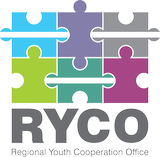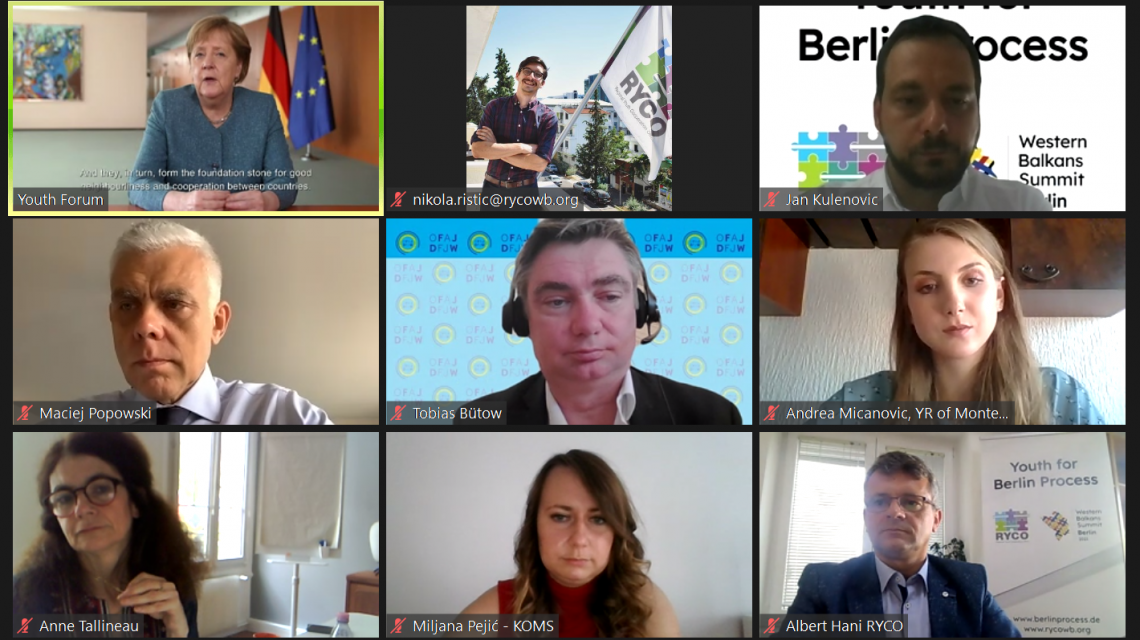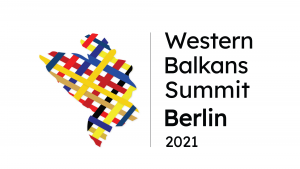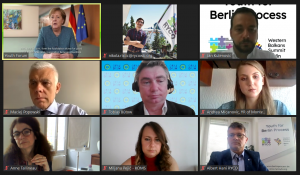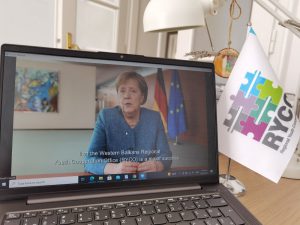WESTERN BALKANS/GERMANY – The Western Balkans Youth Forum, organized in the framework of the Berlin Summit 2021, kicked off online on Tuesday, 29 June 2021. The event brings together young people and decision-makers from the region and the European Union to discuss the current situation of youth in the region and how to improve their position and lives.
In her welcoming video message, German Chancellor Ms Angela Merkel welcomed the participants and underlined that the Regional Youth Cooperation Office (RYCO) is a major success of the Berlin Process. She also pointed out that the youth exchanges is something that brings us closer together, that sows the seeds of understanding and trust between societies. Finally, she highlighted her excitement to hear Forum’s conclusions which, she said, will be discussed among the Western Balkan and European leaders.
Acting Director-General of the Directorate General Neighbourhood and Enlargement Negotiations (DG NEAR) at the European Commission Mr Maciej Popowski said that a better region starts with young people and that they should influence the policies. He underlined that the Youth Forum is a perfect opportunity for young people to voice their needs and expectations and added that the European Union remains committed to the Western Balkans also through supporting youth, education and mobility.
The Youth Forum is as side event of the Berlin Summit. It brings together 80 young leaders from the region and Europe. In an interactive way, they will discuss key challenges and topics such as reconciliation and peacebuilding, volunteering, new skills for future, sustainable development, shifting “brain drain” to “brain gain” and how to increase youth participation. At the end of the Forum, young leaders will develop the Regional Youth Agenda (RYA) which will be presented to the Leaders’ Meeting of the Berlin Process Summit.
The event is co-organized by the Regional Youth Cooperation Office (RYCO) and the Franco-German Youth Office (OFAJ) in cooperation with other regional initiatives and networks. It is organized with the support of the German Ministry of Foreign Affairs and co-funded by the European Union.


